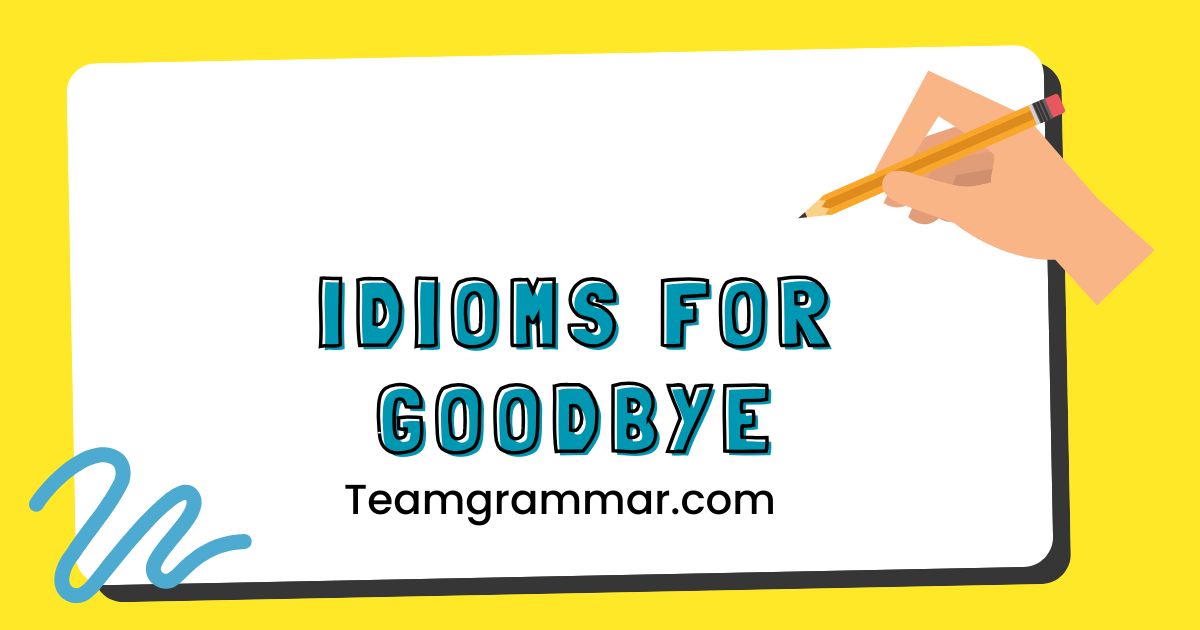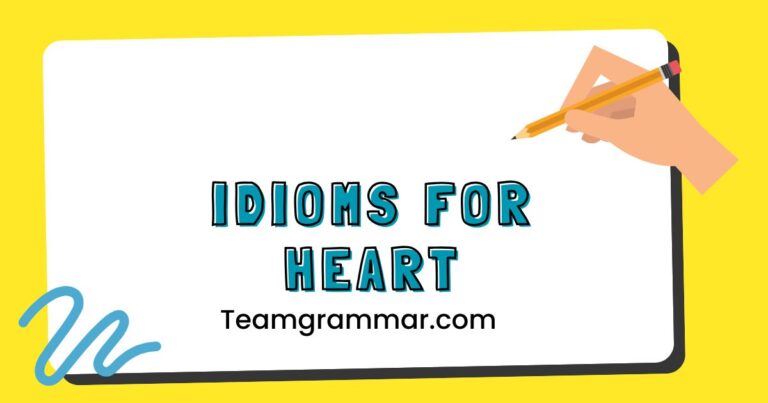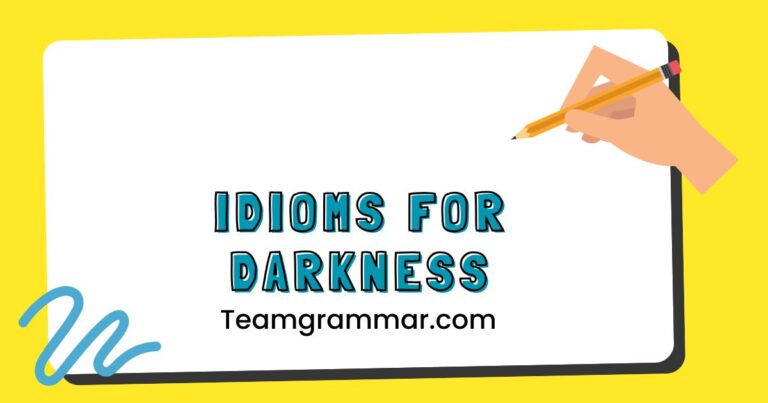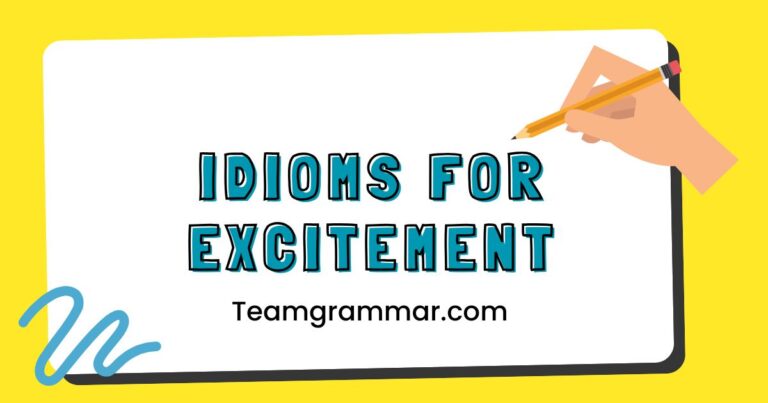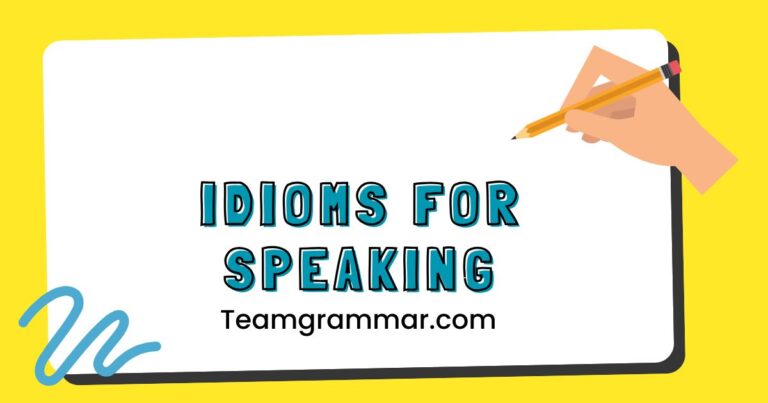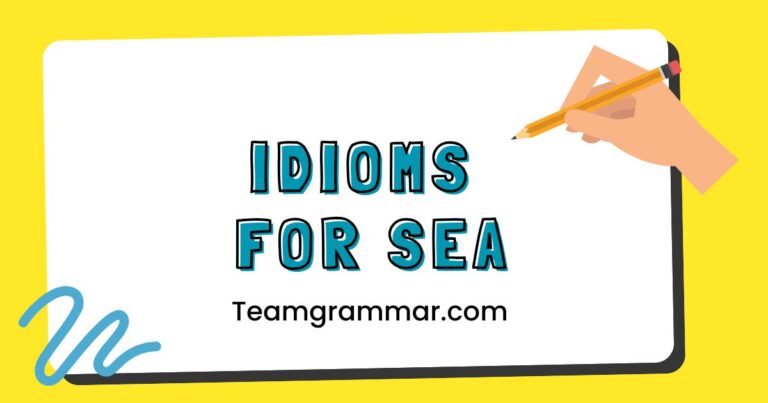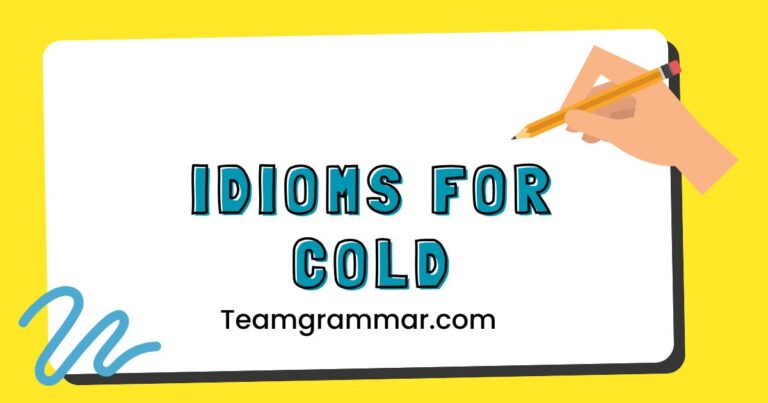47 Goodbye Idioms: Mastering Farewell Expressions in English
Mastering the art of saying goodbye is more than just uttering a simple “goodbye.” English offers a rich tapestry of idioms that add color, nuance, and personality to farewells. Understanding these idioms is crucial for effective communication, allowing you to express a wide range of emotions and intentions.
This article delves into the fascinating world of goodbye idioms, exploring their meanings, structures, and usage. Whether you’re an English language learner or a native speaker looking to expand your vocabulary, this guide will equip you with the knowledge and tools to bid farewell with confidence and flair.
This article will benefit English language learners who want to sound more natural and expressive, native English speakers who wish to expand their vocabulary, and anyone interested in the nuances of the English language and the art of saying goodbye in various social contexts. By the end of this article, you’ll be able to confidently use a variety of goodbye idioms in your daily conversations, adding depth and personality to your farewells.
Table of Contents
- Definition of Goodbye Idioms
- Structural Breakdown
- Types and Categories of Goodbye Idioms
- Examples of Goodbye Idioms
- Usage Rules for Goodbye Idioms
- Common Mistakes with Goodbye Idioms
- Practice Exercises
- Advanced Topics in Goodbye Idioms
- Frequently Asked Questions (FAQ)
- Conclusion
Definition of Goodbye Idioms
Goodbye idioms are fixed expressions or phrases whose meanings cannot be deduced from the literal definitions of the individual words. They are used to express farewell, departure, or the end of a conversation or interaction.
Understanding goodbye idioms is crucial for effective communication, as they often carry nuances and connotations that a simple “goodbye” may lack. These idioms can range from formal and polite to informal and casual, reflecting the relationship between the speakers and the context of the situation.
Idioms, in general, are a cornerstone of idiomatic language, and goodbye idioms are a specific subset that focuses on the act of parting. They are classified as phrasal expressions and function as a way to signal the end of a conversation or meeting.
The context in which they are used is incredibly important; a phrase appropriate among close friends might be entirely inappropriate in a business setting.
Classification of Goodbye Idioms
Goodbye idioms can be classified based on several factors, including their formality, tone, and the specific context in which they are used. Here are some key classifications:
- Formal Idioms: Used in professional or formal settings.
- Informal Idioms: Common among friends and family.
- Casual Idioms: Very relaxed and often used with close acquaintances.
- Humorous Idioms: Used to lighten the mood and add a touch of humor.
- Regional Idioms: Specific to certain geographic locations or dialects.
Function of Goodbye Idioms
The primary function of goodbye idioms is to signal the end of an interaction, but they also serve several other important functions:
- Expressing Emotion: Conveying feelings of sadness, happiness, or anticipation.
- Establishing Tone: Setting the level of formality or informality.
- Building Rapport: Strengthening relationships through shared language.
- Adding Personality: Reflecting the speaker’s individual style and character.
- Avoiding Monotony: Making farewells more interesting and engaging.
Contexts for Using Goodbye Idioms
The appropriate use of goodbye idioms depends heavily on the context of the situation. Consider the following:
- Formal Settings: Business meetings, professional conferences, interactions with superiors.
- Informal Settings: Family gatherings, casual conversations with friends, social events.
- Online Communication: Emails, text messages, social media posts.
- Phone Conversations: Calls with colleagues, friends, or family members.
- Travel: Airports, train stations, hotels.
Structural Breakdown
Goodbye idioms, like all idioms, often defy standard grammatical rules. Their structure is fixed, meaning the words cannot be changed or rearranged without altering or losing the idiom’s meaning.
Understanding their structure involves recognizing common patterns and components.
Most goodbye idioms are phrases, meaning they consist of two or more words. These phrases can be categorized by their grammatical structure:
- Prepositional Phrases: E.g., “See you *around*.”
- Verb Phrases: E.g., “Take *care*.”
- Clauses: E.g., “I’ll be *seeing* you.”
The key is to recognize that these phrases function as a single unit with a meaning distinct from the individual words. For example, “See you later” doesn’t literally mean that you will visually perceive the person at a later time; it’s a standard way of saying goodbye.
Common Structural Patterns
Several patterns appear frequently in goodbye idioms:
- “See you…” This is a very common pattern, with variations like “See you later,” “See you soon,” “See you tomorrow,” etc.
- “Take…” This pattern is often used to wish someone well, such as “Take care” or “Take it easy.”
- “Have a…” This pattern is used to wish someone a pleasant experience, like “Have a good day” or “Have a good one.”
Grammatical Considerations
While idioms themselves don’t follow standard grammatical rules, the surrounding sentences should. For example:
- Correct: “I have to go now. See you later!”
- Incorrect: “Me go now. See you later!”
Ensure the sentence structure and grammar surrounding the idiom are correct to maintain clarity and professionalism.
Types and Categories of Goodbye Idioms
Goodbye idioms can be categorized based on various factors, including their level of formality, the specific context in which they are used, and the emotions they convey. Understanding these categories can help you choose the most appropriate idiom for any given situation.
Formal Goodbye Idioms
These idioms are suitable for professional settings, formal events, and interactions with people you don’t know well. They convey respect and politeness.
- “Goodbye”
- “Farewell”
- “Have a good day”
- “Have a pleasant evening”
- “I bid you adieu” (somewhat archaic, but still used in formal contexts)
- “It was a pleasure meeting you”
- “I appreciate your time”
- “I look forward to our next meeting”
Informal Goodbye Idioms
These idioms are appropriate for casual conversations with friends, family, and close acquaintances. They are more relaxed and friendly.
- “See you later”
- “See you soon”
- “Talk to you later”
- “Catch you later”
- “Later”
- “Bye”
- “Bye-bye”
- “Take care”
- “Have a good one”
- “Have a good weekend”
Casual Goodbye Idioms
These idioms are very relaxed and often used among close friends and family members. They may not be appropriate in formal settings.
- “Peace out”
- “Later, gator” (often followed by “In a while, crocodile”)
- “So long”
- “I’m out”
- “Gotta go”
- “Keep in touch”
- “Cheers” (British English)
Humorous Goodbye Idioms
These idioms are used to lighten the mood and add a touch of humor to the farewell. They are best used with people who appreciate your sense of humor.
- “I gotta bounce”
- “I’m off like a dirty shirt”
- “TTYL” (Talk To You Later – internet slang)
- “I’m Audi 5000” (slang from the 1980s, meaning “I’m outtie”)
- “Don’t let the door hit you on the way out” (sarcastic)
Regional Goodbye Idioms
Some goodbye idioms are specific to certain geographic locations or dialects. Using these idioms can make you sound like a local, but be mindful of your audience.
- “Ta-ta” (British English)
- “Cheerio” (British English)
- “Hoo roo” (Australian English)
- “A bientot” (French – See you soon)
- “Ciao” (Italian – Goodbye or Hello)
Examples of Goodbye Idioms
This section provides extensive examples of goodbye idioms, categorized for easy reference. Each category includes a variety of idioms with clear explanations of their meanings and appropriate contexts.
Formal Goodbye Idioms – Examples
The following table provides examples of formal goodbye idioms with their meanings and example sentences. These idioms are suitable for professional settings and interactions where respect and politeness are paramount.
| Idiom | Meaning | Example Sentence |
|---|---|---|
| Goodbye | A standard formal farewell. | “Goodbye, Mr. Smith. It was a pleasure speaking with you.” |
| Farewell | A more formal and often final farewell. | “Farewell, my friend. I wish you all the best in your future endeavors.” |
| Have a good day | A polite way to wish someone well as you part. | “Thank you for your help. Have a good day.” |
| Have a pleasant evening | A polite way to wish someone well as you part in the evening. | “It was nice seeing you. Have a pleasant evening.” |
| I bid you adieu | An old-fashioned, very formal goodbye. | “I bid you adieu, madam. It has been a delightful conversation.” |
| It was a pleasure meeting you | A polite way to end a first-time meeting. | “It was a pleasure meeting you, Dr. Jones. I look forward to working with you.” |
| I appreciate your time | A polite way to thank someone for their time before leaving. | “I appreciate your time, Mr. Brown. I’ll be in touch soon.” |
| I look forward to our next meeting | A professional way to indicate you expect to meet again. | “Thank you for the presentation. I look forward to our next meeting.” |
| Until next time | A formal way of saying goodbye, implying a future meeting. | “Alright, until next time, everyone. Be sure to review the documents.” |
| I must take my leave | A very formal way of excusing oneself. | “I must take my leave now. Thank you for your hospitality.” |
| Please accept my best wishes | A polite way to express good wishes upon departure. | “Please accept my best wishes for your upcoming conference.” |
| I wish you well | A sincere and formal way to wish someone good fortune. | “I wish you well in your new position at the company.” |
| I trust we’ll meet again | A formal expression of hope for a future encounter. | “I trust we’ll meet again at the next industry event.” |
| Have a productive day | A professional way to wish someone success in their work. | “Have a productive day, team. Let’s make this a successful one.” |
| I am grateful for your assistance | A polite way to express gratitude before departing. | “I am grateful for your assistance in resolving this issue. Goodbye.” |
| Thank you for your consideration | A formal way to thank someone for their attention. | “Thank you for your consideration. I hope to hear from you soon.” |
| It’s been a pleasure working with you | A formal way to express satisfaction with a collaboration. | “It’s been a pleasure working with you on this project. Goodbye.” |
| I wish you success in all your endeavors | A formal and heartfelt wish for future success. | “I wish you success in all your endeavors, Mr. Thompson.” |
| May your day be filled with success | A formal, positive wish for someone’s day. | “May your day be filled with success and accomplishment.” |
| Until we meet again | A formal way of saying goodbye, looking forward to a future meeting. | “Until we meet again, I wish you safe travels.” |
Informal Goodbye Idioms – Examples
The following table provides examples of informal goodbye idioms suitable for conversations with friends and family. These idioms are more relaxed and convey a sense of familiarity.
| Idiom | Meaning | Example Sentence |
|---|---|---|
| See you later | A common and casual way to say goodbye. | “I’m heading out. See you later!” |
| See you soon | Indicates you expect to see the person again in the near future. | “It was great catching up. See you soon!” |
| Talk to you later | A casual way to say goodbye, implying you’ll speak again. | “I’ve got to run. Talk to you later!” |
| Catch you later | Similar to “See you later,” but slightly more informal. | “Alright, I’m off. Catch you later!” |
| Later | A shortened version of “See you later.” | “I’m leaving. Later!” |
| Bye | A standard informal farewell. | “Bye! Have a great day.” |
| Bye-bye | A more playful and affectionate way to say goodbye. | “Bye-bye! Love you!” |
| Take care | A friendly way to wish someone well as you part. | “It was good seeing you. Take care!” |
| Have a good one | A general way to wish someone well. | “I’m going now. Have a good one!” |
| Have a good weekend | A specific wish for a pleasant weekend. | “See you next week. Have a good weekend!” |
| Keep in touch | A way to encourage continued communication. | “It was great seeing you. Keep in touch!” |
| See ya | A shortened, informal version of “See you.” | “See ya! I’ll call you tomorrow.” |
| All right then | A casual way to signal departure. | “All right then, I’m off. See you around!” |
| Have fun | A wish for an enjoyable experience. | “Have fun at the party! Bye!” |
| I’m out | A simple way to say you are leaving. | “I’m out! Gotta catch my bus.” |
| Later days | An informal synonym for “See you later.” | “Later days! I’ll text you later.” |
| Peace | A very informal and casual goodbye. | “Peace! I’m heading home.” |
| Have a good night | A wish for a pleasant evening and night. | “Have a good night! Sleep well.” |
| Cheers | (British English) A casual goodbye. | “Cheers! See you next week.” |
| Take it easy | A relaxed way to wish someone well and encourage them to relax. | “Take it easy! I’ll see you on Friday.” |
Casual Goodbye Idioms – Examples
The following table provides examples of casual goodbye idioms. These are best used among close friends and in very informal settings.
| Idiom | Meaning | Example Sentence |
|---|---|---|
| Peace out | A very informal and casual goodbye. | “Peace out, guys! I’m heading home.” |
| Later, gator | A playful and rhyming goodbye. | “Later, gator! In a while, crocodile!” |
| So long | An informal and somewhat old-fashioned goodbye. | “So long, partner! See you next time.” |
| I’m out | A simple and direct way to say you are leaving. | “I’m out! Gotta run!” |
| Gotta go | A shortened way of saying “I’ve got to go.” | “Gotta go! I’m late for my appointment.” |
| Keep in touch | An encouragement to stay in contact. | “It was great seeing you. Keep in touch!” |
| Cheers | (British English) A casual goodbye. | “Cheers! See you later.” |
| I’m off | A simple statement that you are leaving. | “I’m off! See you tomorrow.” |
| See you around | A casual way to say you expect to see the person again. | “See you around! Maybe at the gym?” |
| Have a good one | A general, casual way to wish someone well. | “Have a good one! I’m out.” |
| Alright, I’m going | A casual way to signal you are leaving. | “Alright, I’m going. Bye!” |
| Going now | A simple way to indicate departure. | “Going now. Talk to you soon!” |
| I’m bouncing | A slang term for leaving quickly or abruptly. | “I’m bouncing! See ya!” |
| Laterz | A very casual and slangy version of “Later.” | “Laterz! Catch you tomorrow!” |
| Peace and love | A very informal and friendly way to say goodbye. | “Peace and love! Take it easy.” |
| I’m dipping | Slang for leaving. | “I’m dipping. See you guys later.” |
| Running off | Indicating you are leaving quickly. | “Running off now! Bye!” |
| Take it sleazy | A humorous and very informal way to say “Take it easy.” | “Take it sleazy! Have a good one.” |
| Catch you on the flip side | A retro and casual goodbye. | “Catch you on the flip side! Bye!” |
| Adios | Spanish for Goodbye, used casually. | “Adios! See you next week.” |
Usage Rules for Goodbye Idioms
Using goodbye idioms correctly involves understanding the nuances of each expression and the context in which it is appropriate. Here are some key rules to follow:
- Consider the formality: Choose idioms that match the level of formality of the situation.
- Know your audience: Use idioms that your audience will understand and appreciate.
- Pay attention to tone: Select idioms that convey the appropriate tone, whether it’s friendly, respectful, or humorous.
- Avoid overuse: Using too many idioms can sound unnatural or forced.
- Be mindful of regional variations: Some idioms are specific to certain regions or dialects.
Formality Rules
The most important rule is to match the formality of the idiom to the formality of the situation. Using a casual idiom in a formal setting can be disrespectful, while using a formal idiom in a casual setting can sound stiff and unnatural.
Audience Rules
Consider your audience when choosing a goodbye idiom. Some idioms may not be familiar to people from different cultures or age groups.
Avoid using idioms that might be confusing or offensive.
Tone Rules
Goodbye idioms can convey different tones, such as friendliness, respect, humor, or sadness. Choose idioms that match the tone you want to convey.
For example, “Take care” is friendly and caring, while “Farewell” is more formal and somber.
Overuse Rules
While idioms can add color to your language, using too many can make you sound unnatural or like you are trying too hard. Use them sparingly and appropriately.
Regional Rules
Be aware of regional variations in goodbye idioms. Some idioms are specific to certain geographic locations or dialects.
Using a regional idiom in the wrong place can be confusing or even humorous, but not always in a good way.
Common Mistakes with Goodbye Idioms
Even experienced English speakers sometimes make mistakes when using goodbye idioms. Here are some common errors to avoid:
- Misunderstanding the meaning: Using an idiom incorrectly because you don’t fully understand its meaning.
- Using the wrong level of formality: Using a casual idiom in a formal setting, or vice versa.
- Overusing idioms: Using too many idioms in a single conversation.
- Mispronouncing idioms: Pronouncing the words in an idiom incorrectly.
- Creating non-existent idioms: Inventing phrases that sound like idioms but are not actually used.
| Incorrect | Correct | Explanation |
|---|---|---|
| “Goodbye, see you soonly.” | “Goodbye, see you soon.” | “Soonly” is not a word; the correct idiom is “See you soon.” |
| “Peace out, Mr. President.” | “Goodbye, Mr. President.” | “Peace out” is too informal for addressing the President. |
| “I’m bidding you good riddance.” | “I bid you adieu.” or “Good riddance.” | “I bid you good riddance” mixes two different expressions. “I bid you adieu” is a formal goodbye, while “Good riddance” expresses pleasure at someone’s departure. |
| “Take it easy, sir.” | “Have a good day, sir.” | “Take it easy” is generally considered too informal for addressing someone with “sir.” |
| “Catch you after.” | “Catch you later.” | The correct idiom is “Catch you later,” not “Catch you after.” |
| “Have a goodly day.” | “Have a good day.” | “Goodly” is an archaic word and not used in this context. |
| “I’m off like a swift.” | “I’m off like a shot.” | The correct idiom is “I’m off like a shot,” meaning to leave quickly. |
| “See you in a while, alligator.” | “Later, gator.” or “In a while, crocodile.” | The correct rhyming expression is “Later, gator” followed by “In a while, crocodile.” |
| “Bye for nows.” | “Bye for now.” | The correct expression is “Bye for now,” not “Bye for nows.” |
| “Have a goodly one.” | “Have a good one.” | “Goodly” is not used in modern English in this context; the correct idiom is “Have a good one.” |
Practice Exercises
Test your understanding of goodbye idioms with these practice exercises. Choose the most appropriate idiom for each scenario.
Exercise 1: Choosing the Right Idiom
Select the best goodbye idiom for each situation from the options provided.
| Question | Options | Answer |
|---|---|---|
| You are leaving a formal business meeting. | a) See you later b) Have a good one c) I appreciate your time | c) I appreciate your time |
| You are saying goodbye to a close friend. | a) Farewell b) Catch you later c) I bid you adieu | b) Catch you later |
| You are leaving a casual gathering with friends. | a) Goodbye b) Peace out c) Have a pleasant evening | b) Peace out |
| You are saying goodbye to your boss after a project review. | a) Later b) Have a productive day c) I’m out | b) Have a productive day |
| You are leaving a family dinner. | a) So long b) Bye-bye c) It was a pleasure meeting you | b) Bye-bye |
| You are finishing a phone call with a colleague. | a) Keep in touch b) Talk to you later c) I must take my leave | b) Talk to you later |
| You are saying goodbye at the end of a formal event. | a) Cheers b) Have a pleasant evening c) I’m bouncing | b) Have a pleasant evening |
| You are leaving a friend’s house after watching a movie. | a) Farewell b) I’m dipping c) See you around | c) See you around |
| You are saying goodbye after a first date that went well. | a) I’m off like a shot b) It was a pleasure meeting you c) Later, gator | b) It was a pleasure meeting you |
| You are leaving a store after making a purchase. | a) Have a good one b) I bid you adieu c) Laterz | a) Have a good one |
Exercise 2: Fill in the Blanks
Fill in the blanks with the most appropriate goodbye idiom.
| Question | Answer |
|---|---|
| “________, I have to catch my train.” | Gotta go |
| “________, I’ll see you at the conference.” | Until next time |
| “It was great seeing you. ________!” | Keep in touch |
| “________, I’m heading home.” | Peace out |
| “________, everyone! Have a great weekend.” | Bye-bye |
| “________, I’ll text you later.” | Catch you later |
| “________, it’s been a pleasure working with you.” | Goodbye |
| “________, I’m out of here.” | So long |
| “________, I trust we’ll meet again soon.” | Farewell |
| “________, have a good one!” | Alright, I’m going |
Advanced Topics in Goodbye Idioms
For advanced learners, exploring the etymology and cultural context of goodbye idioms can provide a deeper understanding of their usage and significance.
Etymology of Goodbye Idioms
Many goodbye idioms have interesting origins that shed light on their meanings. For example, the phrase “Adieu” comes from the French “à Dieu,” meaning “to God,” reflecting a wish for divine protection until the next meeting.
Cultural Context of Goodbye Idioms
The use of goodbye idioms can vary significantly across cultures. In some cultures, formal farewells are highly valued, while in others, more casual expressions are preferred.
Understanding these cultural nuances is essential for effective cross-cultural communication.
Evolving Idioms
Language is constantly evolving, and new goodbye idioms emerge over time, often influenced by slang and popular culture. Staying up-to-date with these new expressions can help you sound more current and natural.
Frequently Asked Questions (FAQ)
Here are some frequently asked questions about goodbye idioms:
- What is the difference between “Goodbye” and “Farewell”?
“Goodbye” is a standard formal farewell, suitable for most situations. “Farewell” is more formal and often implies a more permanent or significant departure.
- Is it okay to use “See you later” in a professional setting?
It depends on your relationship with the person. If you have a close, informal relationship with a colleague, “See you later” might be acceptable. However, in more formal settings, it’s better to use “Have a good day” or “I look forward to our next meeting.”
- What does “Peace out” mean?
“Peace out” is a very informal and casual goodbye, often used among close friends. It originated in the hip-hop culture and conveys a sense of relaxation and goodwill.
- What is the origin of “Later, gator”?
“Later, gator” is a playful and rhyming goodbye that originated in the United States. It is often followed by “In a while, crocodile.” The exact origin is unknown, but it is believed to have emerged in the mid-20th century.
- Is “Cheers” only used in British English?
While “Cheers” is commonly used as a goodbye in British English, it is also used in other English-speaking countries, though perhaps less frequently. In American English, it’s more commonly used as a toast.
- What’s a good alternative to “Goodbye” that is both polite and friendly?
“Have a good day” is a great alternative. It’s polite, friendly, and suitable for a wide range of situations.
- How can I improve my understanding of goodbye idioms?
Read widely, listen to native speakers, and pay attention to the context in which idioms are used. Practice using idioms in your own conversations to become more comfortable with them.
- Are there any goodbye idioms that should be avoided?
Avoid idioms that are offensive, confusing, or inappropriate for the situation. Be mindful of your audience and the tone you want to convey.
- When is it appropriate to use humorous goodbye idioms?
Humorous goodbye idioms are best used with people who appreciate your sense of humor and in situations where it’s appropriate to lighten the mood. Avoid using them in formal or serious settings.
- How do I know if a goodbye idiom is outdated?
Pay attention to how frequently
and by whom the idiom is used. If you rarely hear it in contemporary conversations, it may be outdated. You can also consult online resources and dictionaries to check the currency of an idiom.
Conclusion
Mastering goodbye idioms is an essential step toward achieving fluency and cultural competence in English. By understanding the nuances of these expressions, you can communicate more effectively, build stronger relationships, and navigate social situations with confidence.
Whether you’re bidding farewell in a formal business meeting or parting ways with close friends, the right goodbye idiom can make all the difference. Continue to practice and expand your knowledge of these expressions, and you’ll be well on your way to mastering the art of saying goodbye in English.

